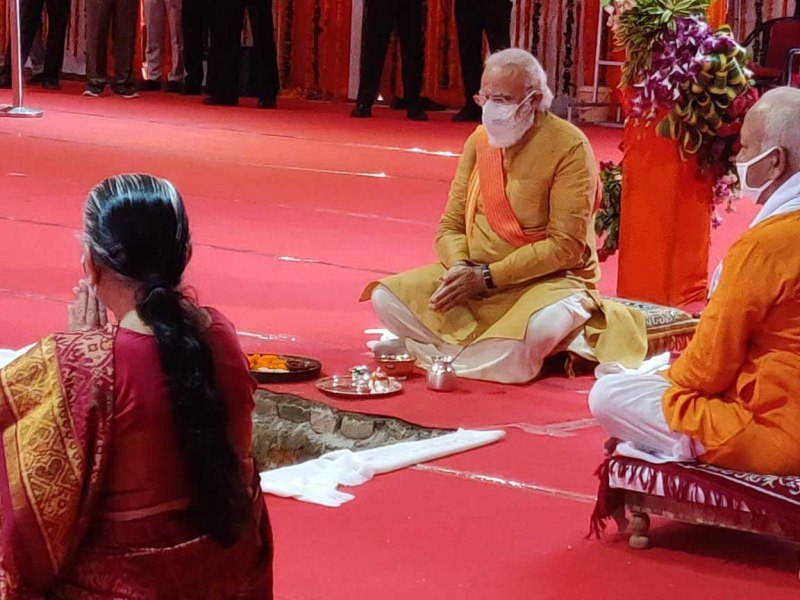 Ram Mandir
Ram Mandir
Lord Ram is in India's ideals and faith: PM Modi, laying foundation stone of Ram Mandir in Ayodhya
Ayodhya/IBNS: Laying the foundation stone of Ram Mandir at Uttar Pradesh's Ayodhya amid the Novel Coronavirus scare, Prime Minister Narendra Modi on Wednesday said Lord Ram is in the ideals and faith of the country.
Modi, who shared dais with Uttar Pradesh Chief Minister Yogi Adityanath and Rashtriya Swayamsevak Sangh (RSS) chief Mohan Bhagwat, said in his address, "There is no aspect of life where Rama does not inspire. There is no such feeling of India in which Lord Ram is not seen. Ram is in the faith of India, Ram is in the ideals of India! Ram is in the divinity of India, there is Ram in the philosophy of India."
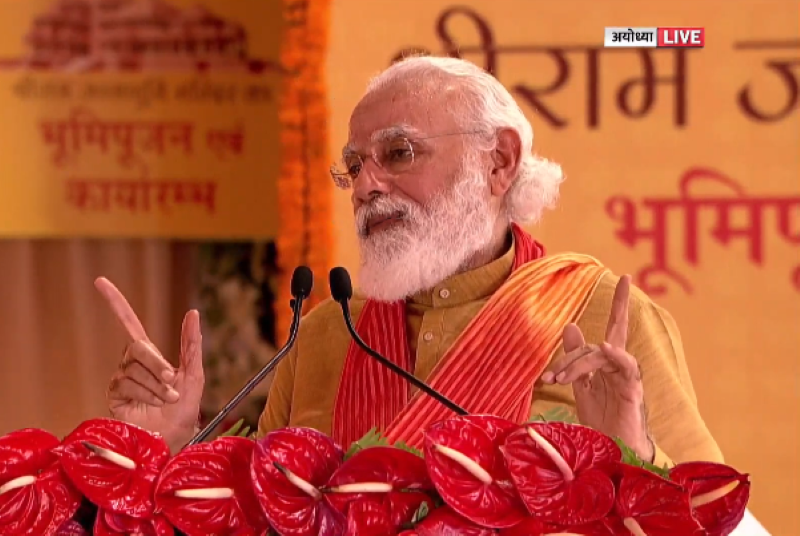
"Even today, there are dozens of countries outside India where Ramkatha is prevalent in the language of that place. I believe that even today in these countries, crores of people will have a very pleasant feeling with the start of construction of Ram temple. After all, Ram is everyone, everyone is there," the PM said.
After 29 years, Modi on Wednesday went to Ayodhya where he was received by Adityanath, who was leading the charge in overviewing the preparations for the grand ceremony which took place here for about three hours.
Entering the temple, Modi prayed to God and also took part in all rituals which were scheduled to take place.
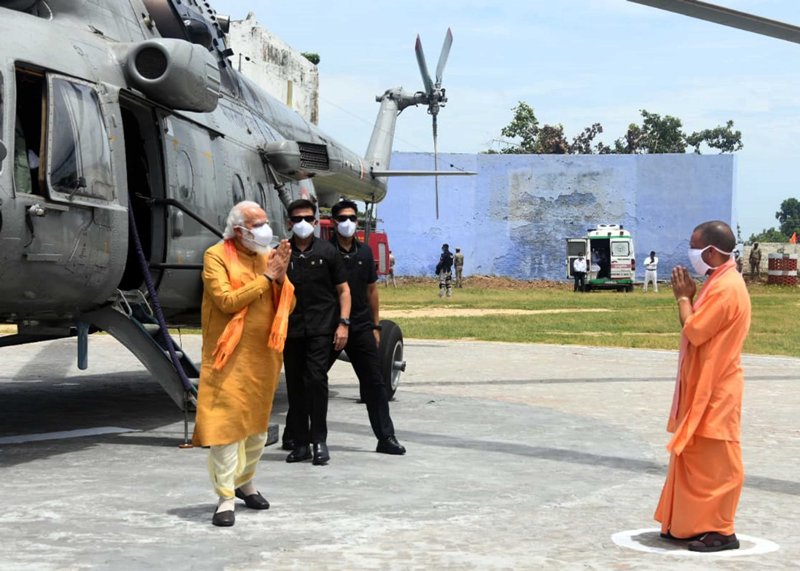
In a bid to spread the message of Lord Ram in the world, Modi said, "We have to ensure how the message of Lord Shri Ram, the message of our thousands of years of tradition, reaches the whole world continuously. How the world is familiar with our knowledge, our life-vision, it is the responsibility of all of us, our present and future generations."
"Ram speaks, thinks, according to time, place and circumstances. Ram teaches us to grow with time, to teach us to walk. Ram is in favor of change, Ram is in favor of modernity. With these inspirations, India is moving ahead with Shri Ram's ideals," he added.
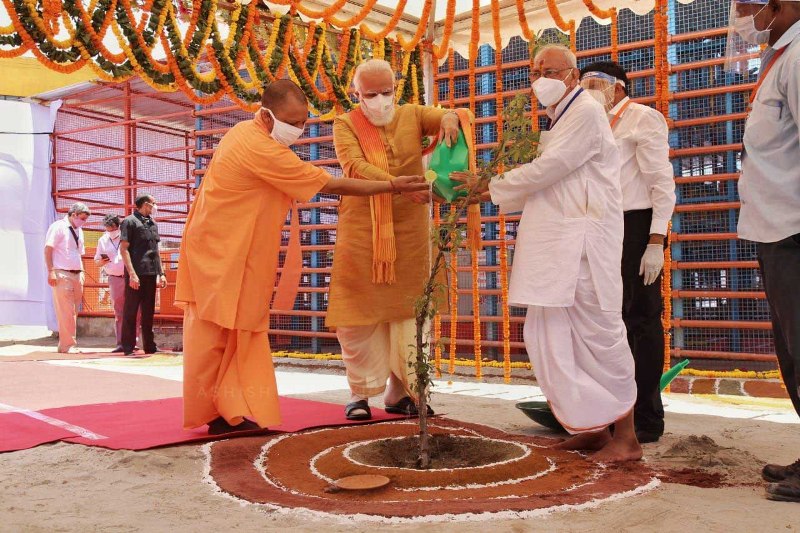
Blending the occasion of the "Bhoomi Pujan" with the ongoing Covid-19 pandemic, the PM concluded his speech saying, "Keep a distance of two yards [six feet] and wear mask.. it is all the more important today amid Coronavirus to follow the maryada [values of modesty, honour, rightousness and discipline] practised by Ram."
Ram temple movement proves that how an issue of civil dispute over a piece of land gradually became one of the most defining aspects of politics in contemporary India.
Century old Ayodhya dispute now a history: How the saga unfolded since 1857
But everything was put to rest after the Supreme Court ruling on Nov 9, 2019 that the disputed land at Ayodhya be given to the Ram Janmabhoomi Nyas, drawing curtains on a 70-year legal battle in independent India and 90 years during the British rule.
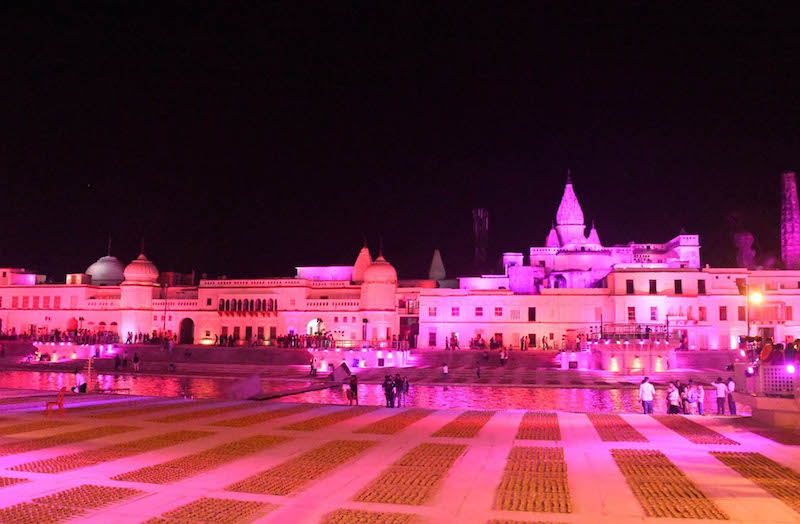
One of the longest-drawn legal battles in the nation’s history, the Ayodhya issue has created political turmoil in the country starting from mid 1980s after the Rajiv Gandhi government ordered it to unlock the Ram Janmabhoomi site. On Dec 6, 1992, the Babri Masjid structure was demolished by thousands of Hindu ‘kar sevaks’ (volunteers), triggering turmoil in India which saw the rise of the Hindu nationalist Bharatiya Janata Party (BJP) in national politics.
Babri Masjid was built by Mir Baqi, commander of Mughal emperor Babur in 1528 but the controversy kicked off 150 years later during the British regime in 1857, the year of India’s first struggle of Independence against the British Raj.
(Images: BJP Twitter, UNI)
Support Our Journalism
We cannot do without you.. your contribution supports unbiased journalism
IBNS is not driven by any ism- not wokeism, not racism, not skewed secularism, not hyper right-wing or left liberal ideals, nor by any hardline religious beliefs or hyper nationalism. We want to serve you good old objective news, as they are. We do not judge or preach. We let people decide for themselves. We only try to present factual and well-sourced news.






